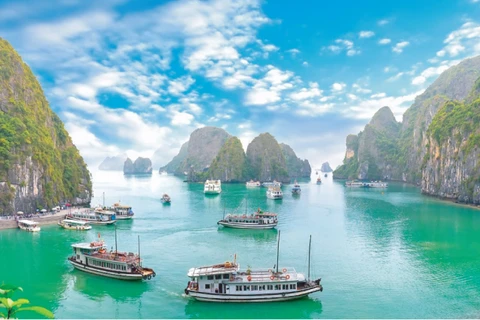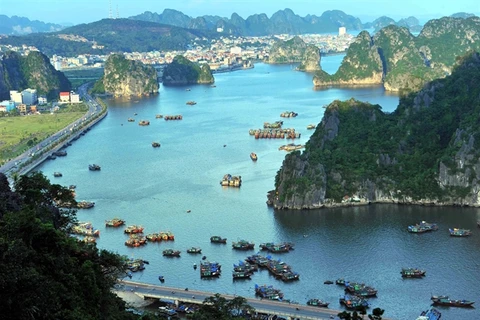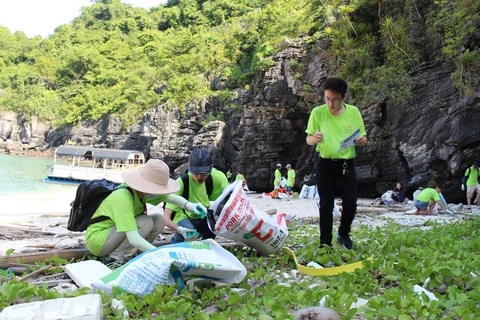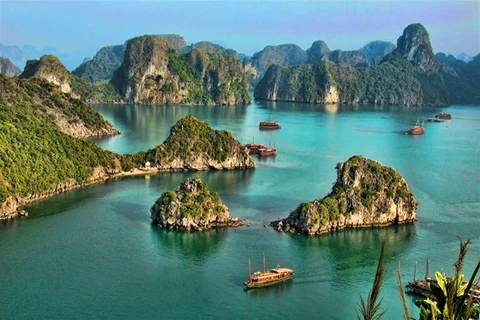Quang Ninh (VNA) – Authorities in the northern province of Quang Ninh has approved a proposal to continue a zero-plastic-waste programme on the local Ha Long Bay, a UNESCO World Heritage Site.
Accordingly, organisations and individuals working in tourism and services on the waters commit not to use, buy and sell single-use plastic products, replacing them with environmentally friendly ones.
Communications are set to be strengthened for tourists not to bring single-use plastic products onboard and use during their cruises around Ha Long Bay. Ship owners are advised to take measures to refuse transportation in cases where customers intentionally do not comply with this regulation.
The pilot of the programme began on September 1, 2019. It has so far attracted the participation of 270 businesses, ship owners, kayak service providers, and fish farmers. Meanwhile, nearly 30 fishing vessels have joined collecting thousands of tonnes of waste in the area.
The programme has helped reduce 90% of disposable plastic waste at attractions on the bay and 94% of the number of foam buoys on floating works of organisations and individuals engaged in tourism business and service activities on the bay.
Ha Long Bay is one of Vietnam’s most popular travel destinations.
An estimate in 2020 by the Ending Plastic Pollution Innovation Challenge (EPPIC) project showed that among over the 28,280 tonnes of plastic waste released in the Ha Long Bay area each year, about 5,272 could be discharged to the sea, and 34 tonnes of waste came from tourism activities every day./.
Accordingly, organisations and individuals working in tourism and services on the waters commit not to use, buy and sell single-use plastic products, replacing them with environmentally friendly ones.
Communications are set to be strengthened for tourists not to bring single-use plastic products onboard and use during their cruises around Ha Long Bay. Ship owners are advised to take measures to refuse transportation in cases where customers intentionally do not comply with this regulation.
The pilot of the programme began on September 1, 2019. It has so far attracted the participation of 270 businesses, ship owners, kayak service providers, and fish farmers. Meanwhile, nearly 30 fishing vessels have joined collecting thousands of tonnes of waste in the area.
The programme has helped reduce 90% of disposable plastic waste at attractions on the bay and 94% of the number of foam buoys on floating works of organisations and individuals engaged in tourism business and service activities on the bay.
Ha Long Bay is one of Vietnam’s most popular travel destinations.
An estimate in 2020 by the Ending Plastic Pollution Innovation Challenge (EPPIC) project showed that among over the 28,280 tonnes of plastic waste released in the Ha Long Bay area each year, about 5,272 could be discharged to the sea, and 34 tonnes of waste came from tourism activities every day./.
VNA

























